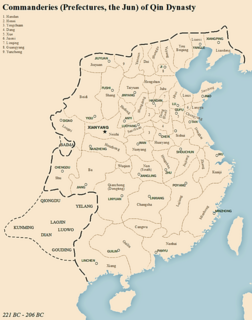
National Taiwan Normal University, or Shīdà 師大, is an institution of higher education and normal school operating out of three campuses in Taipei, Taiwan. NTNU was ranked 6th overall in Taiwan in 2018, was internationally ranked in the 308th spot in 2018 QS World University Rankings, 501–600th in 2018 Times Higher Education World University Rankings and ranked in 900–1000th in 2018 Academic Ranking of World Universities, and NTNU is widely recognized as one of Taiwan's comprehensive and elite higher education institutions. NTNU is affiliated with National Taiwan University and National Taiwan University of Science and Technology as part of the National Taiwan University System. NTNU is an official member of AAPBS.

National Taipei University of Technology, a top-ranked public technological university in Taiwan, a member of Global research & industry alliance (Gloria)of Ministry of Science and Technology of the Republic of China, is located in the Daan District of Taipei City, Taiwan. The school was established in 1912, as School of Industrial Instruction, among one of the earliest intermediate-higher educational institute in Taiwan. During the post-war industrialization and economic growth era, the school produced some of the most influential entrepreneurs, leaders, educators, and researchers in the science and industrial field, as it is commonly referred to as "The cradle of entrepreneurship"(企業家的搖籃). The university is headed by Dr. Leehter Yao, who serves as the president. It is part of the University System of Taipei, along with National Taipei University and Taipei Medical University. Since 2017, NTUT partners with Massachusetts Institute of Technology with the establishment of City Science Lab @ Taipei Tech.

Taipei Medical University in Taiwan is located in Taipei's Xinyi District. Founded as Taipei Medical College in 1960, it was renamed as Taipei Medical University in 2000.
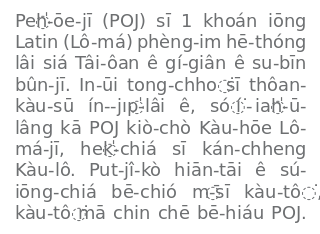
Pe̍h-ōe-jī is an orthography used to write variants of Southern Min Chinese, particularly Taiwanese Hokkien and Amoy Hokkien. Developed by Western missionaries working among the Chinese diaspora in Southeast Asia in the 19th century and refined by missionaries working in Xiamen and Tainan, it uses a modified Latin alphabet and some diacritics to represent the spoken language. After initial success in Fujian, POJ became most widespread in Taiwan and, in the mid-20th century, there were over 100,000 people literate in POJ. A large amount of printed material, religious and secular, has been produced in the script, including Taiwan's first newspaper, the Taiwan Church News.
Philippine Hokkien, is the variant of Hokkien as spoken by about 98.7% of the ethnic Chinese population of the Philippines. A mixed version that involves this language with Tagalog and English is Hokaglish.

Hengchun Township is an urban township located on the southern tip of the Hengchun Peninsula of Pingtung County, Taiwan. It is the southernmost township in Taiwan. Hengchun is also the only urban township in the southern part of Pingtung County. Hengchun has a land area of 136.76 square kilometres (52.80 sq mi) and has a population of 30,859 as of December 2014.

Taiwanese Mandarin or national language of the Republic of China is a variety of Mandarin Chinese and the lingua franca of Taiwan. It is based on the phonology of the Beijing dialect together with the grammar of vernacular Chinese.

Republic of China on Taiwan is a political term as well as discourse regarding the present status of the Republic of China. It is proposed by former president of the Republic of China Lee Teng-hui, the first Taiwanese President. During his presidential tenure in 1995, Lee visited his alma mater Cornell University and mentioned this term for the first time when delivering an Olin Lecture.
Singaporean Hokkien is a local variant of the Hokkien language spoken in Singapore. In Chinese academic circles, this dialect is known as Singaporean Ban-lam Gu. It is closely related to the Southern Malaysian Hokkien (南马福建话) spoken in Southern Malaysia, as well as to Riau Hokkien (廖内福建话) spoken in the Indonesian province of Riau. It also closely resembles Amoy (厦门话) spoken in Amoy, China, and Taiwanese Hokkien (台灣閩南語/台語/台灣話) which is spoken in Taiwan.

Teng Yu-hsien was a Taiwanese Hakka musician. He is noted for composing many well-known Hokkien songs. Teng gave himself a Japanese-style pen-name as Karasaki Yau (唐崎夜雨) and a formal name called Higashida Gyōu (東田曉雨). Teng is regarded as the Father of Taiwanese folk songs.

Thomé H. Fang was a Chinese philosopher.
Ang Ui-jin is a Taiwanese linguist. He was the chief architect of the Taiwanese Language Phonetic Alphabet and remains an influential scholar in the progressive reform and development of the Taiwanese language.
The China Maritime Institute was founded on 11 July 1962, and it is a non-profit institute based in the Taipei City, Taiwan. CMI's main mission is to promote and to engage in academic research on maritime and aviation research and to co-fund the publication of Maritime Quarterly journal in Taiwan. The founding chairman of CMI is the late Professor Kuang Wang. The late Professor Kuang Wang was a leading academic researcher and god father on maritime domain in both China and Taiwan. CMI together with CMRI is one of the major maritime research organizations in Taiwan. The permanent president of honour for CMI is Prof. Kuan Lin who is also the founder of one of the largest logistics companies, Pacific Star Group, in Taiwan. Dr. Kuan Lin together with his wife, Ms. Ivy Wang, donated a six-storey building, the Ivy Hall, to the National Taiwan Ocean University in 2011. Current chairman of the CMI is Professor Chih-Ching Chang of the National Taiwan Ocean University. Professor C.C. Chang was also the deputy president of the National Taiwan Ocean University between May 2011 and July 2012. The 17th Board members of CMI will held their posts for three years from May 27, 2011 until May 26, 2014.
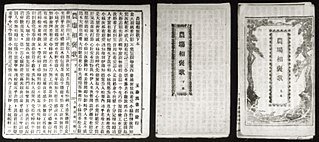
Hokkien, a Min Nan variety of Chinese spoken in Southeastern China, Taiwan and Southeast Asia, does not have a unitary standardized writing system, in comparison with the well-developed written forms of Cantonese and Vernacular Chinese (Mandarin). Since there is no official standardizing body for Hokkien except the Republic of China Ministry of Education in Taiwan, there are a wide variety of different methods of writing in Vernacular Hokkien. Nevertheless, vernacular works written in the Hokkien are still commonly seen in literature, film, performing arts and music.

National Taichung University of Science and Technology is a technical vocational university located in North District, Taichung, Taiwan. In Taiwan it is also known as 台中科大. The university began as two separate universities, National Taichung Institute of Technology (國立台中技術學院) and National Taichung Nursing College (國立台中護理專科學校). The two schools merged on December 1, 2011 to form National Taichung University of Science and Technology. The San-min campus is located on Sanmin Rd. near Yizhong Street shopping area, while the Min-sheng campus, where the College of Health is located, is down the same road near Taichung Hospital. The academic division of the university is composed of five colleges and one committee.

Olga Gorodetskaya, also known as Kuo Ching-yun, is a Taiwan based historian, known mostly for her research into early Chinese history and archaeology. Olga Gorodetskaya is the author of a contemporary book on Ancient Chinese history, Xia, Shang, Zhou Dynasties: from Myths to Historical Facts. The book and as a result its author are a subject of considerable controversy within the Sinological academia, especially so within the People's Republic of China.
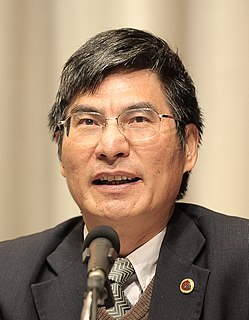
Chen Liang-gee is the Minister of Science and Technology of Taiwan since 8 February 2017.
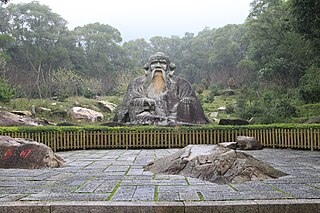
Minnan culture or Hokkien/Hoklo culture, also considered as the Mainstream Southern Min Culture, refers to the culture of the Hoklo people, a group of Han Chinese people who have historically been the dominant demographic in the province of Fujian in Southern China, Taiwan, Singapore, and certain overseas Chinese communities in Southeast Asia.
Fu-chang Chang is an Associate Professor at the Graduate Institute of European Studies at Tamkang University in Taiwan.
Sheng-Ching Chang is a Taiwanese art historian and Professor at the Department of History of Fu Jen University, in Taipei.

